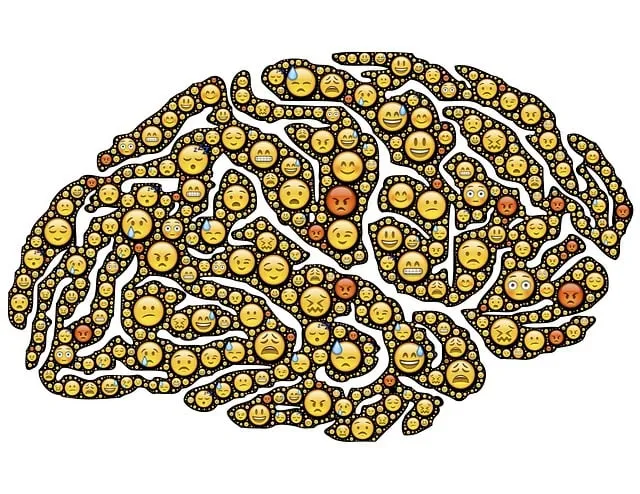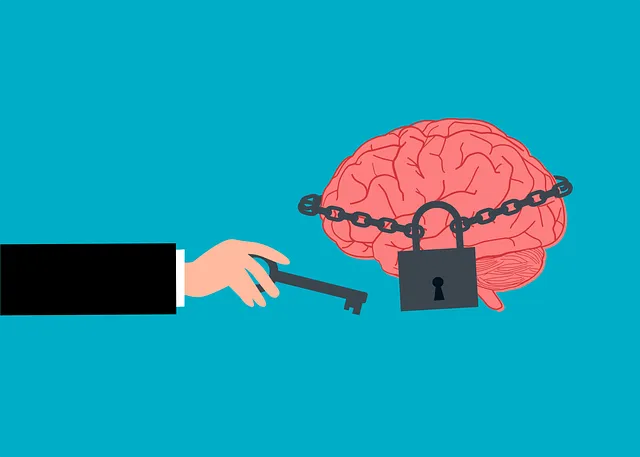The text highlights the challenges in diagnosing mental illness at institutions like Centennial Kaiser Permanente, despite advancements and increasing awareness. Overlapping symptoms between disorders, subjective assessment, cultural sensitivity gaps, and limited training contribute to misdiagnoses. The accessible Centennial Kaiser Permanente psychiatry phone number underscores the need for improved diagnosis accuracy. Integrating Compassion Cultivation Practices, Stress Management, public awareness campaigns, comprehensive training, and open communication can enhance mental health care, ensuring patients receive tailored treatments like Mindfulness Meditation or Mental Wellness Journaling instead of ineffective interventions due to misdiagnoses.
Mental illness diagnosis accuracy is a critical aspect of patient care, yet current practices present significant challenges. This article explores common gaps and the impact of inaccurate diagnoses on patient outcomes, highlighting the need for innovation. We introduce modern assessment tools and the pivotal role technology, research, and professional training play in enhancing diagnosis accuracy. Additionally, we discuss how initiatives like the Centennial Kaiser Permanente psychiatry phone number improve access to specialized care, contributing to broader efforts in this essential area.
- The Current State of Mental Illness Diagnosis Accuracy
- – Discussion on common challenges and gaps in current diagnosis practices
- – Impact of inaccurate diagnoses on patient care and outcomes
The Current State of Mental Illness Diagnosis Accuracy

The current state of mental illness diagnosis accuracy is a complex issue with significant implications for patient care and treatment outcomes. Despite advancements in psychiatric research and an increasing awareness of mental health concerns, misdiagnoses remain prevalent. This is partly due to the multifaceted nature of many disorders, which often present with overlapping symptoms, making differentiation challenging. For instance, depression and anxiety can share similar manifestations, leading to incorrect diagnoses if not properly evaluated. Furthermore, the subjective aspect of psychiatry, where symptoms are based on patient reporting, introduces potential for bias and error.
Centennial Kaiser Permanente’s psychiatry phone number serves as a resource for individuals seeking clarification or a second opinion, emphasizing the need for accurate diagnosis. The integration of Compassion Cultivation Practices and Stress Management techniques into psychiatric care has shown promise in improving assessment accuracy. These methods not only enhance patient-doctor relationships but also encourage more detailed reporting of symptoms. Additionally, Public Awareness Campaigns Development initiatives can empower individuals to recognize signs of mental illness early on, leading to more precise diagnoses and timely interventions.
– Discussion on common challenges and gaps in current diagnosis practices

Despite significant strides in mental health awareness, current diagnosis practices at Centennial Kaiser Permanente psychiatry phone number face considerable challenges and gaps. One major hurdle is the subjectivity involved in assessment, where subtle nuances in symptoms can be easily overlooked or misinterpreted. This is further complicated by the vast spectrum of mental health conditions, making it challenging for professionals to stay updated on every subtlety and nuance. Additionally, cultural sensitivity in mental healthcare practice remains a critical issue. Different cultures may express mental distress differently, leading to potential misdiagnosis if not properly addressed.
Another significant challenge lies in building confidence among both patients and providers. Patients often feel hesitant to disclose certain experiences or feelings due to stigma or fear of judgment, impeding accurate diagnosis. Similarly, healthcare providers, especially those new to the field, may lack the necessary skills and experience to navigate these complexities, leading to misdiagnosis or delayed treatment. Enhancing mental health awareness and boosting confidence through comprehensive training can significantly improve diagnosis accuracy, ultimately fostering more effective care at institutions like Centennial Kaiser Permanente.
– Impact of inaccurate diagnoses on patient care and outcomes

Inaccurate mental illness diagnoses can have profound implications for patient care and outcomes. When a patient receives a misdiagnosis, it often leads to ineffective treatment plans, causing further distress and potentially worsening symptoms. This can result in prolonged suffering, reduced quality of life, and even an increased risk of self-harm or suicide. For instance, a patient experiencing anxiety disorders might be incorrectly diagnosed with depression, receiving medication and therapy that are not suitable for their specific condition. This could delay access to the appropriate treatment, such as Mindfulness Meditation or Mental Wellness Journaling Exercise Guidance, which is tailored to address anxiety symptoms.
At establishments like Centennial Kaiser Permanente, where psychiatry phone numbers are readily available, accurate diagnoses are paramount. Misdiagnoses can stem from various factors, including limited assessment tools, lack of specialized training among healthcare providers, or even cultural biases that affect symptom interpretation. To improve diagnosis accuracy, comprehensive training programs, including Crisis Intervention Guidance, should be implemented to equip professionals with the knowledge and skills needed to recognize nuanced symptoms. Additionally, encouraging open communication between patients and providers can facilitate more precise diagnoses, ensuring that individuals receive the most effective care for their mental health concerns.
Mental illness diagnosis accuracy is a critical aspect of patient care, and efforts to improve it are paramount. The current state, as highlighted by challenges like limited access to resources, interrater variability, and cultural biases, underscores the need for enhanced diagnostic practices. Organizations like Centennial Kaiser Permanente can play a pivotal role through innovative initiatives and by providing essential services, such as accessible psychiatry phone numbers. By addressing these gaps, we can ensure more accurate diagnoses, leading to improved patient outcomes and a more supportive mental health landscape.






